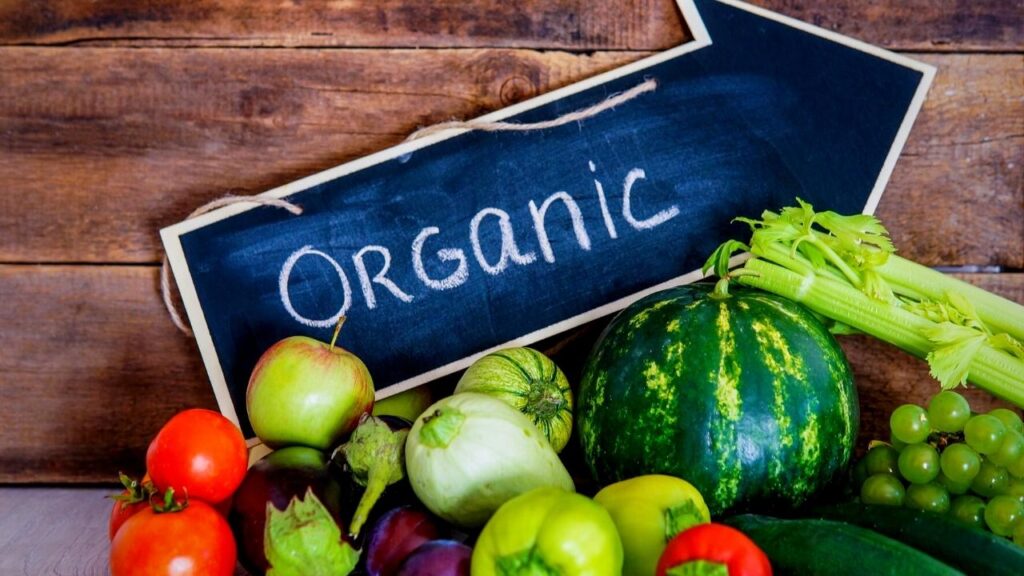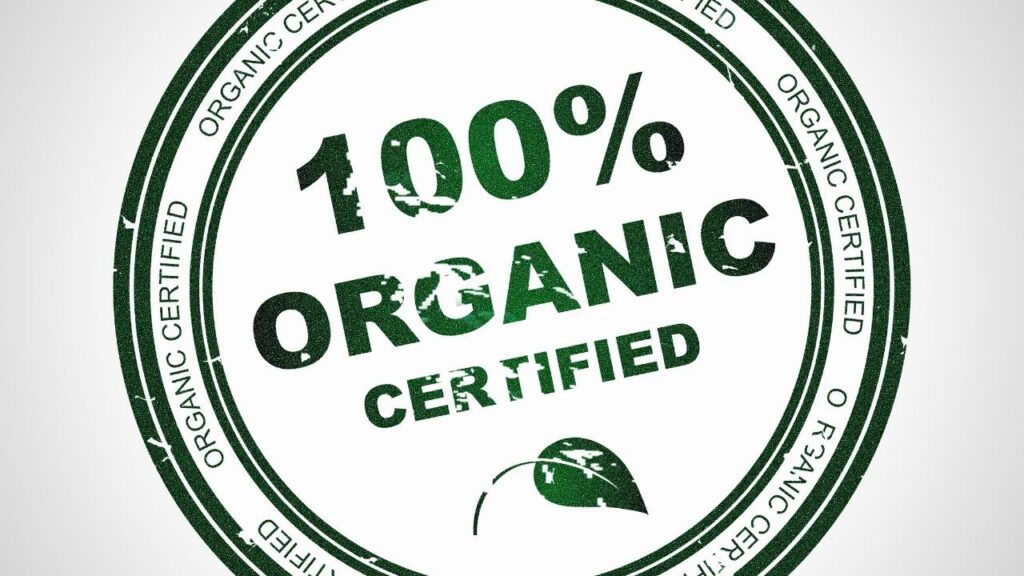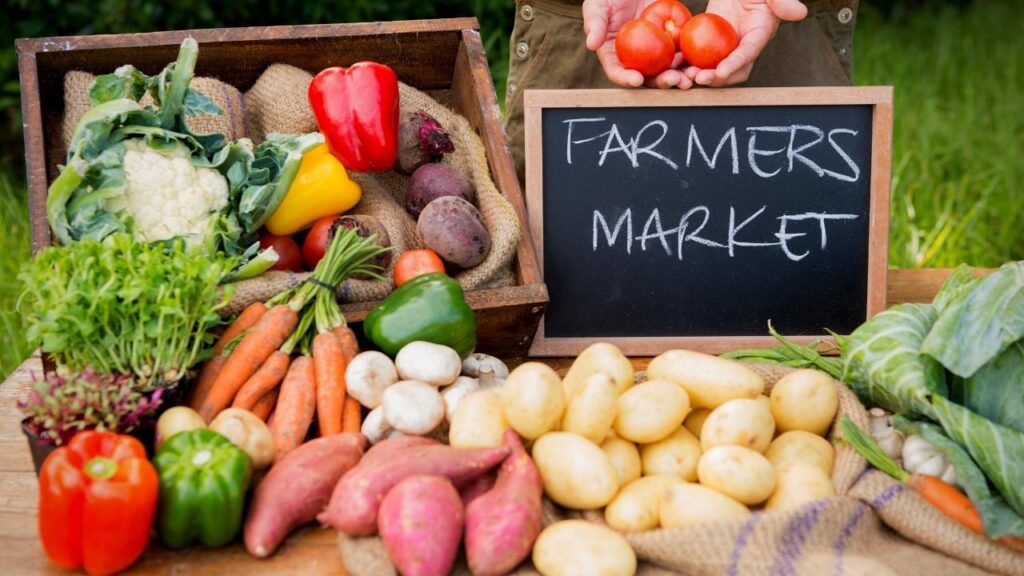Last Updated on 24 October 2022 by Alisea Mae
Organic food is an essential for many consumers that want the greenest, healthiest source of food possible. Or so they assume. There are many of us that have been led to believe that there are many benefits to going organic, but not all consumers know what this means. So what do we actually mean when we say organic and is it as beneficial as we think?

There are two different types of organic foods that we want to consider here
We need to look at organic produce in regards to fruit and vegetables, and organic produce from livestock and animal sources. Some people automatically attribute the term organics to vegetables, but there is more to the issue than that.
Organic fruit and vegetables:
An organically produced crop is one where farmers take care to employ the right organic agricultural methods. There are many different factors involved here, and the most reliable, dedicated farms will use them all. This means rotating crops in a more natural cycle, using natural manure fertilizers and adding biological pest controls where necessary. Chemical products are not part of this organic process.

Organic meat and animal products:
Then there is the organic label on any product that comes from livestock on a farm. This means not only the cuts of meat in the meat industry but also produce from the dairy industry. Organic produce is, once again, free from nasty additives, chemicals and other products that may “enhance” the texture, flavour or life. Many conventional farms rely on growth regulators and feed additives to “improve” their herds. This may mean that cows can produce more milk, or have greater muscle mass for meat.

How can we tell that the food in stores is organic?
Organic food should have the right labels on it to help consumers make the right choices. Calling a vegetable organic isn’t enough. Some composite products will have a percentage of organic items listed on the label – this needs to be at least 95% to qualify. Some farmers will add Soil Association stamps to their labels too. Then there is the ingredients list on the back of a box. Look out for any signs of preservatives, colourings and sweeteners as these are not allowed in organic food.

The first benefit here is a lack of chemicals within our food
Those of us that want to live naturally and enjoy the natural goodness of produce can rest assured that the organic food we buy is much safer. It hasn’t been subjected to the same chemicals as other conventionally farmed goods. This means no traces of pesticides, herbicides or other synthetic components that could cause us harm. There is greater peace of mind here knowing that the produce we eat is as it was meant to be.
Then there is the fact that there are positive influences on the natural environment
Many consumers also choose to go organic because they have a green conscience. There are negative environmental consequences to opting for agricultural produce with different pesticides and herbicides. This sort of treatment is designed to protect the crop and encourage growth while eliminating bugs and weeds that may be a hindrance. It is more important than ever to turn away from these pesticides and harsh chemicals when important pollinators are suffering. We also need to maintain farmland for wildlife, not scare it away.

Organic production methods should also be better for the livestock involved. The use of additives and growth hormones can turn beautiful animals into a product. They weren’t meant to have oversized udders and all that muscle, and they can suffer for it. Organic farms are also more likely to allow their animals to go outside and live a more natural lifestyle. This is important for those that value welfare standards in their meat and dairy products.
Is organic food healthier for us in other ways?
This is where there is some debate over the full impact of an organic diet on our health and wellbeing. There is no doubt that a lack of chemicals in our food is a good thing. However, there are some mixed opinions on the other health ratings of organic food. There are some that claim that organic food contains a lot more vitamins, minerals and antioxidants than similar produce that has been sprayed or adapted. This is definitely the case with some items. However, the number of antioxidants and vitamins may depend on the variety of the crop, the means of harvesting and the way it is prepared.

It is important to be realistic about organic food and its benefits
There are some people that will promote organic food as the perfect, eco-friendly, healthy way to live. Some are completely blind to the idea that there may be any downsides or hidden issues to organic food. That is why it is important to take a more realistic viewpoint when choosing your produce. There are some clear upsides here in terms of the lack of chemicals and the immediate impact on the animals and habitat. However, there are some potential downsides to choosing this approach. These include:
1) The standard of organic farming involved and the chemicals within the food
2) The negative environmental effects needed to switch to organic farming
3) The higher price tag
There are some farms and providers that will try and inflate their claims to make a sale and raise their prices. Some may just meet the bare minimum standards and still use some unnatural processes or products. Other farms that are dedicated to organic farming may need to expand their land and still use practices that are damaging to local wildlife. The cost is another key issue here. Organic food is more expensive, which is an issue for those on a budget.

There are benefits to going organic when you choose the right product and suppliers
Organic farming isn’t always the perfect fairy tale solution that some people expect. But, there are some clear benefits to making the switch. Farmers that embrace organic can do so in a way that is better for their land and animals. The produce can also be healthier. Research local farmers and produce markets and check the labels at the supermarket. With some care and consideration, you can enjoy a beneficial, ethical organic experience.
Leave a Reply